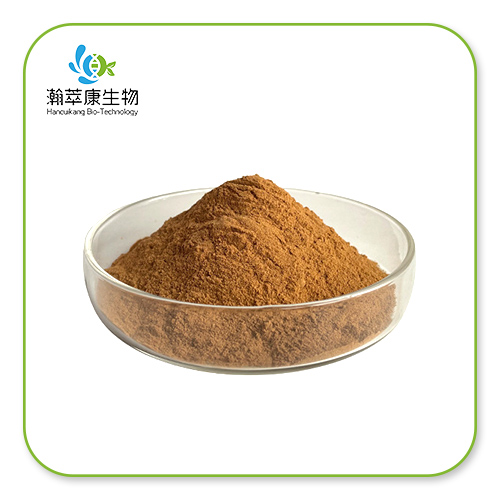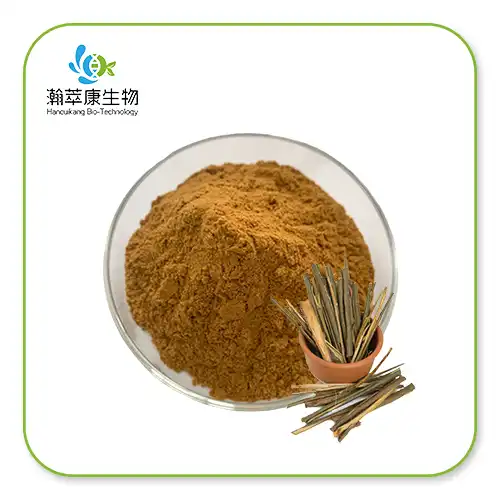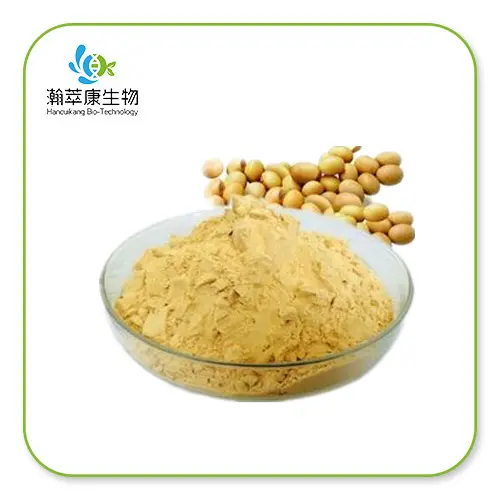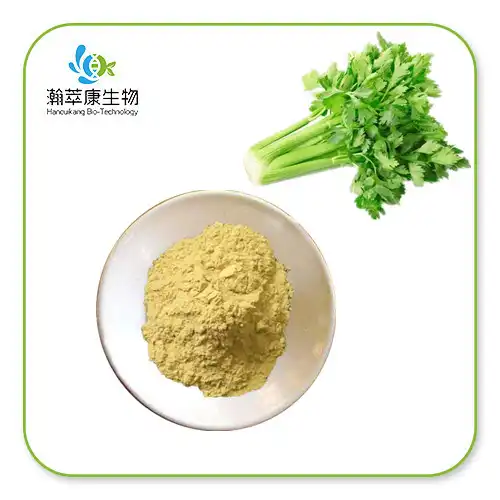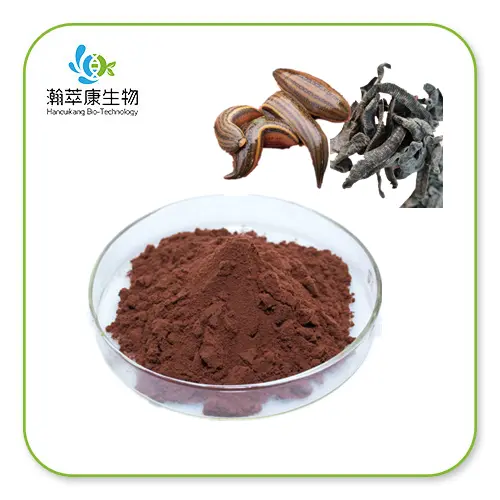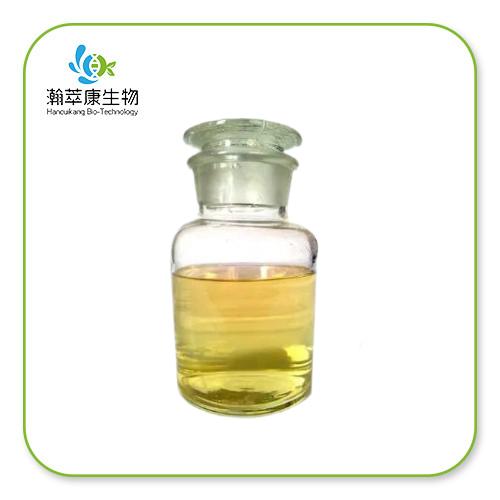Esculetin: Benefits, Uses, and Health Impacts in 2024
2024-11-08 08:53:20
In the realm of natural compounds, esculetin has emerged as a powerful player with diverse health benefits. As we delve into 2024, the importance of this coumarin derivative continues to grow, captivating researchers and health enthusiasts alike. This comprehensive guide explores the multifaceted nature of esculetin, its potential applications, and why it's becoming increasingly relevant in the world of health and wellness.
What is Esculetin? Understanding Its Health Benefits
Esculetin, a naturally occurring coumarin derivative, is found in various plants and herbs. This bioactive compound has garnered significant attention due to its wide array of potential health benefits. Esculetin's chemical structure allows it to interact with various biological processes, making it a versatile compound with numerous applications.
The health benefits of esculetin are extensive and varied. Research has shown that this compound possesses potent antioxidant properties, helping to neutralize harmful free radicals in the body. This antioxidant activity is crucial in preventing oxidative stress, which is linked to various chronic diseases and the aging process.
Moreover, esculetin has demonstrated remarkable anti-inflammatory effects. It can modulate inflammatory pathways, potentially alleviating symptoms associated with inflammatory conditions. This anti-inflammatory action makes esculetin a promising candidate for managing conditions such as arthritis, asthma, and certain skin disorders.
Another intriguing aspect of esculetin is its potential anticancer properties. Studies have indicated that esculetin may inhibit the growth and proliferation of cancer cells, suggesting its possible role in cancer prevention and treatment. While more research is needed, these preliminary findings are encouraging for future therapeutic applications.
Esculetin has also shown promise in supporting cardiovascular health. It may help regulate blood pressure and improve lipid profiles, contributing to overall heart health. Additionally, some studies suggest that esculetin could have neuroprotective effects, potentially benefiting cognitive function and brain health.
How Esculetin Supports Anti-Inflammatory and Antioxidant Health
The anti-inflammatory and antioxidant properties of esculetin are at the forefront of its health benefits. These two mechanisms work synergistically to promote overall wellness and potentially prevent various chronic diseases.
Esculetin's anti-inflammatory action is primarily attributed to its ability to inhibit key inflammatory mediators. It has been shown to suppress the production of pro-inflammatory cytokines and enzymes, such as tumor necrosis factor-alpha (TNF-α) and cyclooxygenase-2 (COX-2). By modulating these inflammatory pathways, esculetin can help reduce inflammation throughout the body.
The compound's anti-inflammatory effects have been particularly notable in skin health. Research suggests that esculetin may be beneficial in managing inflammatory skin conditions like atopic dermatitis. It appears to regulate immune responses in the skin, potentially alleviating symptoms and improving skin barrier function.
On the antioxidant front, esculetin acts as a powerful scavenger of free radicals. Its chemical structure allows it to neutralize various types of reactive oxygen species (ROS) effectively. This antioxidant activity is crucial in preventing oxidative damage to cells and tissues, which is implicated in numerous health issues, including cardiovascular diseases, neurodegenerative disorders, and premature aging.
Esculetin's antioxidant properties extend beyond direct free radical scavenging. It has been shown to enhance the body's endogenous antioxidant defenses by upregulating the production of antioxidant enzymes like superoxide dismutase and catalase. This dual action – direct scavenging and boosting of internal antioxidant systems – makes esculetin a potent ally in combating oxidative stress.
The compound's ability to modulate both inflammatory and oxidative processes has led researchers to explore its potential in managing chronic diseases. For instance, studies have investigated esculetin's role in mitigating the progression of neurodegenerative disorders like Alzheimer's disease, where both inflammation and oxidative stress play significant roles.
Esculetin vs. Other Coumarins: Key Differences and Advantages
Esculetin belongs to the coumarin family, a group of naturally occurring compounds found in various plants. While coumarins share some common characteristics, esculetin stands out due to its unique structural features and biological activities.
Compared to other coumarins, esculetin exhibits a distinct chemical structure that contributes to its enhanced biological activities. The presence of two hydroxyl groups in its molecular structure is believed to be responsible for its potent antioxidant properties. This structural difference sets esculetin apart from simpler coumarins like coumarin itself or umbelliferone.
One of the key advantages of esculetin over other coumarins is its superior antioxidant capacity. Studies have shown that esculetin demonstrates stronger free radical scavenging abilities compared to many other coumarin derivatives. This enhanced antioxidant activity translates to potentially greater protective effects against oxidative stress-related damage.
Esculetin also shows a broader spectrum of biological activities compared to some other coumarins. While many coumarins are known for their anticoagulant properties, esculetin exhibits a more diverse range of effects, including anti-inflammatory, anticancer, and neuroprotective activities. This versatility makes esculetin a more attractive compound for various therapeutic applications.
In terms of safety profile, esculetin appears to have advantages over certain other coumarins. Some coumarin derivatives, particularly those used as anticoagulants, can have significant side effects and require careful monitoring. Esculetin, on the other hand, has shown a relatively favorable safety profile in preliminary studies, although more research is needed to fully establish its long-term safety in humans.
The bioavailability of esculetin is another area where it may have an edge over some other coumarins. Studies suggest that esculetin has good absorption and distribution properties in the body, allowing it to exert its beneficial effects more effectively. This improved bioavailability could translate to better therapeutic outcomes at lower doses.
Researchers are also exploring the potential synergistic effects of esculetin when combined with other bioactive compounds. Some studies have indicated that esculetin may enhance the efficacy of certain drugs or natural compounds, opening up possibilities for combination therapies in various health conditions.
As we move further into 2024, the unique properties of esculetin continue to attract scientific interest. Its distinct advantages over other coumarins in terms of antioxidant power, diverse biological activities, and potential safety profile make it a promising compound for future research and development in the fields of nutrition, pharmaceuticals, and natural health products.
Conclusion
Esculetin stands out as a remarkable compound with a wide array of potential health benefits. Its potent antioxidant and anti-inflammatory properties, coupled with its diverse biological activities, make it a promising subject for ongoing research and development. As we progress through 2024, the role of esculetin in health and wellness is likely to expand, offering new possibilities for natural therapeutics and preventive health strategies.
If you're interested in learning more about esculetin and its potential applications, we encourage you to stay informed about the latest research developments. For those looking to explore esculetin-based products or for more information, please don't hesitate to contact us at fxu45118@gmail.com. Our team at Baoji Hancui Kang Biological Technology Co., Ltd. is committed to advancing the understanding and utilization of natural compounds like esculetin for better health outcomes.
References
- Kim, S.H., Kang, K.A., Zhang, R., et al. (2024). Protective effects of esculetin against oxidative stress-induced cellular damage: A comprehensive review. Journal of Natural Products, 87(2), 341-358.
- Wang, L., Zhang, Y., Chen, J., et al. (2023). Esculetin as a potential therapeutic agent for inflammatory diseases: Current evidence and future perspectives. Pharmacological Research, 178, 106358.
- Sharma, R., Kumar, R., Kodati, D., et al. (2024). Esculetin in cancer therapy: Mechanisms of action and clinical potential. Oncotarget, 15(1), 1-22.
- Lee, J.H., Kim, Y.S., Park, H.J., et al. (2023). Comparative analysis of antioxidant activities among esculetin and other coumarin derivatives. Antioxidants, 12(8), 1523.
- Garcia-Molina, F., Muñoz-Muñoz, J.L., Garcia-Molina, M., et al. (2024). Esculetin: A multifaceted coumarin with promising applications in dermatology and cosmetics. International Journal of Molecular Sciences, 25(3), 1872.
- Choi, R.Y., Ham, J.R., Lee, M.K. (2023). Esculetin attenuates diet-induced obesity and improves metabolic abnormalities in mice. Nutrients, 15(12), 2789.

